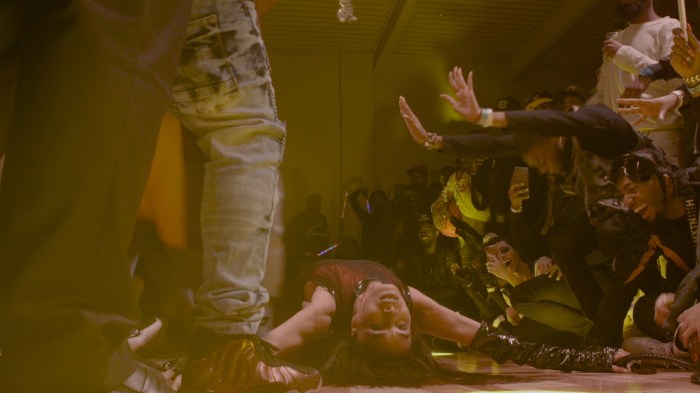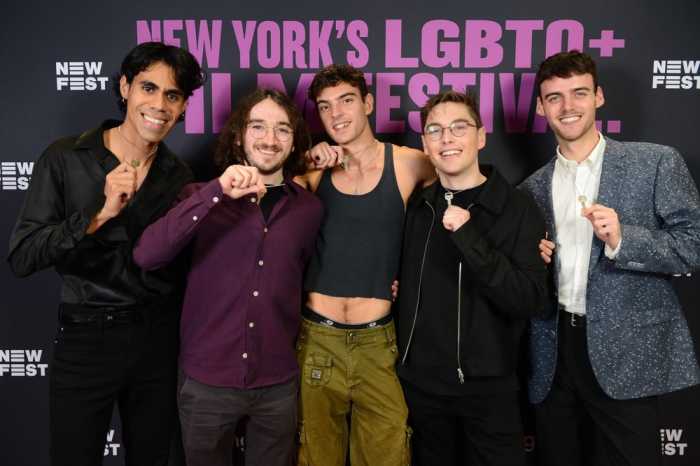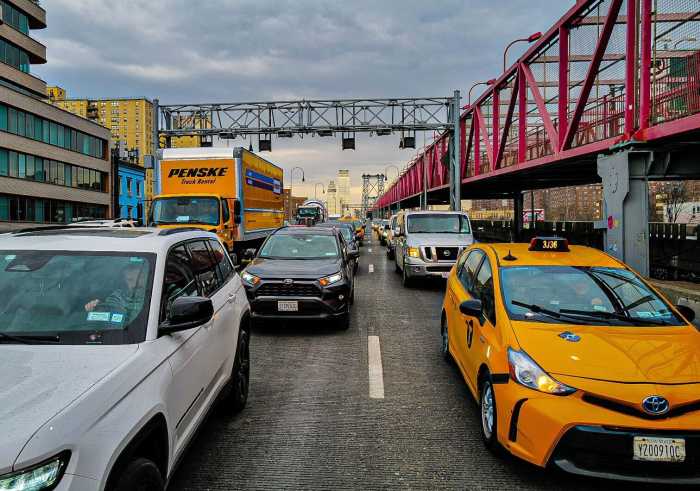The world has been director Denis Villeneuve’s oyster. He’s abandoned his native Quebec after completing his best film, “Polytechnique,” going on to set his follow-up, “Incendies,” in an imaginary Middle Eastern country. Then he arrived in Hollywood, where he has now made his second studio film, “Sicario,” which shows the limits of Villeneuve’s brand of global cinema.
Set in Mexico and the American Southwest, it was actually shot in New Mexico. To put it kindly, it offers a gringo’s point of view on Mexico’s war on drugs. The shortcomings of Villeneuve’s perspective are glaring –– perhaps he should’ve made a film about the heroin problem in Vancouver’s skid row instead.
Arizona-based FBI agent Kate (Emily Blunt) specializes in kidnappings. She gets a surprise when her team raids a house near Phoenix. They find one live man, whom they promptly shoot, but also 20 corpses hidden behind a false wall and a booby-trapped cellar. She’s then called to participate in a special team fighting Mexican drug cartels, where she’ll work with Alejandro (Benicio del Toro) and Matt (Josh Brolin), whose backgrounds are nebulous. But they have great resources, like access to private planes, and they soon fly off to Juarez. Kate realizes quickly that no one takes her seriously and starts to question her role in the mission.
Denis Villeneuve strains to see across the Rio Grande from the Canadian border
“Sicario” comes dangerously comes close to endorsing Donald Trump’s view of Mexico and Mexicans. It does depict a corrupt Mexican cop with a touch of sympathy, emphasizing his closeness to his wife and son, but essentially Villeneuve depicts violence as a contagion slowly spreading north of the border. A news report about the discovery of the house of corpses in Phoenix treats the deaths as a sign that the cartels are finally affecting “us.”
“Sicario” shows little interest in ordinary Mexicans, unlike Gerardo Naranjo’s “Miss Bala.” Here, Mexicans are either drug lords, dirty cops, corpses (mutilated prettily), or children playing soccer. Even Alejandro is much more violent than Matt, although the latter is no saint. A line of dialogue emphasizes that Alejandro is Colombian, not a North American Latino.
Villeneuve seems inspired by Kathryn Bigelow. That’s evident from his cool, detached treatment of torture and police brutality, which caused her so much trouble in “Zero Dark Thirty.” The discovery of a tunnel, shown through night-vision goggles, recalls the raid on Osama bin Laden’s compound in that film as well. “Sicario,” in effect, engages a dialogue with “Zero Dark Thirty” through Kate, who evokes Jessica Chastain’s heroine, but with Bigelow’s feminism removed. But it may be that Villeneueve is offering greater complexity by subverting simplistic “strong woman” tropes.
From the beginning of “Sicario,” Kate suspects Alejandro and Matt are CIA agents. She’s often separated from her best friend in the FBI, who saves her life at one point. Villeneuve frames her in the back of cars and planes, surrounded by three men. She offers common-sense solutions and advice to Alejandro and Matt, which they reject. Halfway through the film, her dissatisfaction starts to take a toll on her looks. “Sicario” emphasizes her heavy smoking habit, something definitely not meant to make her look sexier. She winds up a figurative punching bag –– men supposedly on her side point guns at her repeatedly.
Kate is marginalized by the men around her and the narrative itself, which turns into Alejandro’s revenge fantasy in its final stretch. I’m still unsure if this is a realistic depiction of institutional sexism or an example of the difficulties Hollywood movies have in creating room for smart, capable women. At least this question offers more food for thought than the film’s insulting depiction of Latin Americans.
“Sicario” may shine a fairly cynical light on the war on drugs, but it doesn’t bother asking bigger questions. Is it worth fighting at all? At one point, Matt mentions that 20 percent of Americans use drugs. With statistics like that, his realpolitik suggestion that the cartels can, at best, only be tamed into some semblance of order seems reasonable. But no one in the film ever talks about treating drug abuse as a health problem or legalizing drugs and taking away the cartel’s sustaining market. The film chips away at a real problem but misses the big picture by a mile.
SICARIO | Directed by Denis Villeneuve | Lionsgate | In English and Spanish with English subtitles | Opens Sep. 18 | AMC Lincoln Square 13, 1998 Broadway at W. 68th St. & AMC Empire 25, 234 W. 42nd St.; amctheatres.com | Regal Union Square Stadium 14, 850 Broadway at 14th St.; regmovies.com



































